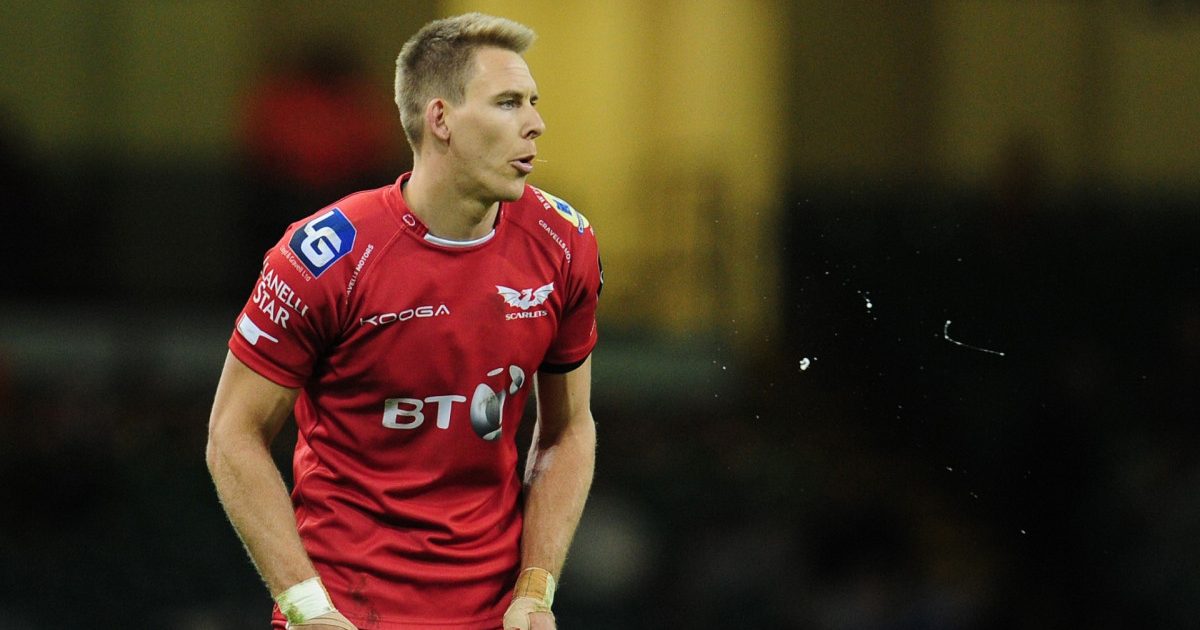First-half Liam Williams red card condemns Scarlets to loss at Cardiff Blues

Liam Williams was sent off in the 37th minute to ruin Scarlets’ chances of a hat-trick of Welsh derby wins, as Cardiff Blues ran out 29-20 winners.
The Wales international rushed headlong into a ruck and clashed heads with prone Blues flanker Shane Lewis-Hughes, and after TMO replays, the wing was ordered off.
At that stage Blues were already in control of the match, with an inspirational performance from outside half Jarrod Evans ensuring that his side put a difficult period behind them, with poor results culminating in the departure of head coach John Mulvihill earlier in the week and Dai Young appointed interim director of rugby.
Blues tries came from Willis Halaholo, Tomos Williams and Rey Lee-Lo, with Evans adding four penalties and a conversion.
Jonathan Davies and Sione Kalamafoni scored tries for Scarlets. Leigh Halfpenny added two conversions and a penalty, with Dan Jones also kicking a penalty.
Blues began brightly, with Tomos Williams racing away from a line-out drive to feed Josh Adams.
The wing then kicked ahead and his follow-up tackle earned a five-metre scrum before Evans kicked his side into the lead with a penalty.
Blues had the better of the opening exchanges but it was the visitors who scored the first try.
A couple of penalties awarded in their favour saw them gain a platform in the Cardiff 22, from where a well-judged pass from Jones enabled Jonathan Davies to brush aside Matthew Morgan’s tackle to score.
Scarlets’ lead lasted only four minutes as Evans showed neat skills to split their defence with Halaholo on hand to race over.
The visitors suffered a further setback when Gareth Davies was yellow-carded for a deliberate knock-on, with Evans kicking the resulting penalty, but the only other score in the scrum-half’s absence was a penalty kicked by Jones as Halfpenny was recovering from a knock.
Gareth Davies had only just returned when Evans again tore the visitors’ defence apart to feed Tomos Williams who sent Lee-Lo over in the corner.
Evans converted from the touchline to give his side an 18-10 lead before Liam Williams was sent off.
Four minutes after the restart, Halfpenny reduced the arrears with a penalty as his side’s depleted pack temporarily took the upper hand.
Without seasoned internationals Ken Owens, Samson Lee and Jake Ball, they were still a match for the home eight, with Kalamafoni and Tevita Ratuva to the fore and it was Kalamafoni who drove over to regain the lead for his side.
Blues’ replacement Rhys Carre was yellow-carded for a no-arms tackle but Blues overcame this loss when Tomos Williams darted over.
Two late penalties from Evans secured a morale-boosting victory for Cardiff and sent Scarlets home without a deserved losing bonus point.




























































































